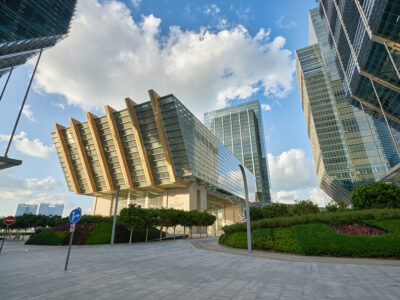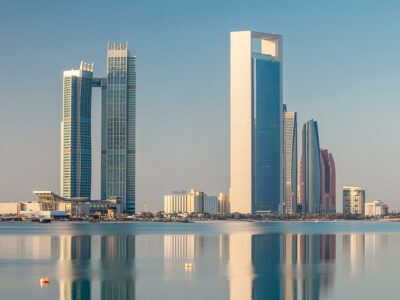There’s a boom in the GCC. That’s old news. The markets are emerging and expanding everyday, financial sectors are developing, and so is real estate, property, tourism and many others. Economies continue to boost their GDPs looking to the hike in oil prices in the last few years, which contributed to Saudi Arabia’s US$366bn GDP and the UAE’s US$168bn in 2006. This, however, is not news either.
What could constitute as information worthy of discussion is the recent meeting between the six Gulf Co-operation Council countries. Discussing a proposal to exempt industrial output of the region from customs duties, the undersecretaries of the ministries of finance and economy of the states gathered in Riyadh in Saudi Arabia last week. A move considered as a possible trigger to boost the region’s manufacturing sector.
There’s a pressing need in the GCC for local industry professionals such as engineers and scientists.
In a standard modern economy, there are three main sectors of economic activity. The first is primary sector that involves the extraction and production of raw materials. The secondary sector takes in raw or intermediate material and transforms it into goods and products. Aside from oil, GCC countries have mainly focused on the last sector of economy, the tertiary sector, which involves the provision of services to consumers and businesses, such as banking, transport, tourism, and entertainment.
And while the balance between these sectors of economy differ depending on countries and regions, a certain equilibrium is essential for any successful economy. The point is, GCC countries have almost leapt across the two first sectors onto the third, missing out on the opportunity of having a strong industrial base. Saudi Arabia remains the biggest producer of non-petrochemical items in the GCC. Its agricultural products include wheat, barley, tomatoes, melons, dates, lemons, lamb, chickens, eggs, and milk.
Still, there’s a huge gap to fill. Although, steel and plastics manufacturing facilities exist in the Kingdom, we are yet to see a car, computer, or even an aeroplane produced in Saudi. Nevertheless, this might now be changing. The manufacturing and production of non-petrochemical products is increasingly becoming the focus of Gulf states. Projects such as Dubai Industrial City aim to develop the industrial sector in the emirate especially in high value-added manufacturing and production in the light and medium industry sector. The facility is divided into six manufacturing sectors for machinery and mechanical equipment, transport equipment and parts, base metal, chemicals, food and beverage and mineral products.
Although this is a positive step forward, much more needs to be done and the GCC is the place to do it. Taxes are almost non-existent (for now), and shifting production and manufacturing from any area in the GCC to other parts of the region where costs are lower is anything but impossible. By doing this, companies still have access to other parts of the Gulf while at the same time benefiting from lower operating costs. This interaction between states moves us towards a single economic bloc that can better compete with other emerging markets such as Brazil, Russia, India and China as well as with more traditional markets such as the US and Europe.
At present, the majority of economies in the GCC claim to be knowledge-based but most of that knowledge is also imported. It is time to cultivate the knowhow, specifically in industries, in these countries. There’s a pressing need in the GCC for local industry professionals such as engineers, scientists, chemists, and technicians in different fields.
It is only through excelling in industry, manufacturing and developing a thorough understanding of what goes into the making of all this exported luxury in the region, that human development can truly come about and thrive.







